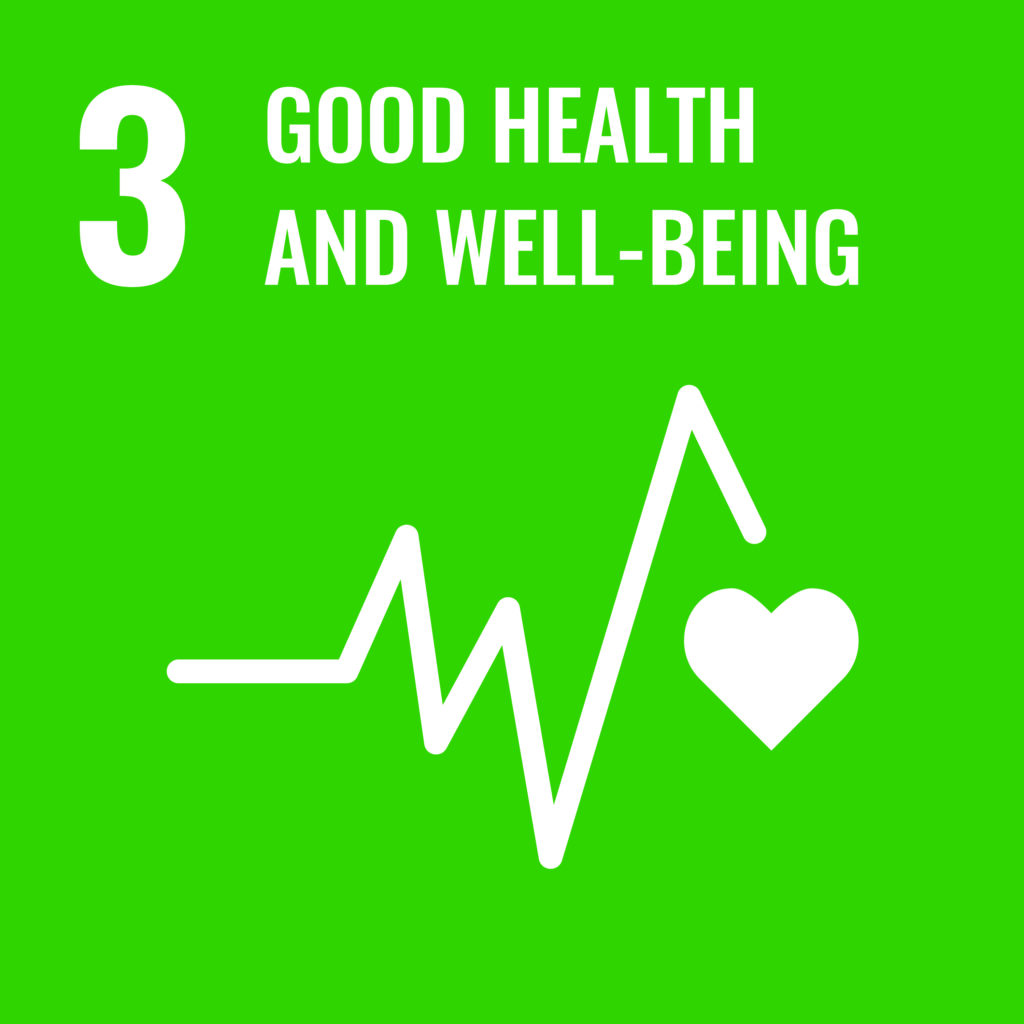SDG 3 – Good Health and Wellbeing

The goal of SDG 3 is to ensure healthy lives and promote well-being for people of all ages, as this is fundamental to sustainable development. In the context of a university, this means focusing research on the critical conditions and diseases that significantly impact global health outcomes, providing support to healthcare professionals, and ensuring the well-being of students and staff.
Copyright: United Nations
Our WHO Collaborating Centre for Physical Activity and Public Health at FAU maintains active collaborations with international, national and local health institutions to improve health and well-being outcomes.
- World Health Organization (WHO)
- Division of Noncommunicable Diseases and Promoting Health through the Life-course (WHO Regional Office for Europe, Copenhagen)
- WHO European Office for Prevention and Control of Noncommunicable Diseases (Moscow, Russian Federation)
- WHO Headquarters, Department of Chronic Diseases and Health Promotion (Geneva, Switzerland)
- European Commission – Sport Unit, Directorate-General for Education and Culture (DG EAC), coordination of the EU Physical Activity Focal Point Network (since 2014)
- German Federal Ministry of Health – Unit for Cardiovascular Diseases, Diabetes and Noncommunicable Diseases
- WHO Collaborating Centres worldwide: University of Sydney, University of Zurich, University of Bremen, Leibniz Institute for Prevention Research and Epidemiology, and others.
These partnerships focus on strengthening health promotion, developing global physical activity guidelines, supporting chronic disease prevention, and reducing health inequalities.
The Teddybärkrankenhaus Erlangen is a health outreach programme in our local community, organised since 2008. The initiative is led by student volunteers (“Teddydocs”) and aims to promote health and well-being among young children by reducing their fear of visiting doctors and dentists in a playful way.
The project offers interactive activities where children bring their stuffed animals as “patients” and learn about hygiene, healthy habits, and medical procedures in a supportive environment. By engaging directly with the community, this outreach programme fosters early trust in healthcare and contributes to preventive health education.
In 2024, the Teddy Bear Hospital celebrated its 16th edition: 155 student volunteers treated more than 1,470 plush patients, making it one of the largest community health promotion events in the region.
Learn more: https://blogs.fau.de/tbkh/
Our university provides mental health support for students, offering free and confidential access to professional counselling services. Students of the Faculty of Engineering can contact the Counselling and Psychological Services center, which supports a wide range of psychological needs, including exam anxiety, stress management, motivational problems, loneliness, low mood, identity issues, addiction, and difficulties integrating into German university life and society.
The counselling is available in German and English, ensuring accessibility for all students. Services are provided by licensed psychological psychotherapists and are available free of charge.
In addition to individual counselling, the university actively promotes good mental health by raising awareness of available services and encouraging students to seek support early.
👉 This ensures that all students have access to mental health support, strengthening their well-being and academic success.
Our university provides mental health support for staff, focusing on resilience, stress management, and overall well-being in everyday university life.
One example is the online seminar “Stress lass nach – Gelassen bleiben im (Uni)alltag”, which is open to all employees. The programme promotes good mental health by teaching strategies for stress management, relaxation, and work-life balance.
This initiative demonstrates our commitment to supporting the mental health and well-being of university staff, ensuring that employees are equipped with practical tools to maintain balance, reduce stress, and strengthen resilience.
Our university has a formal smoke-free policy in place, which prohibits smoking inside all university buildings. This applies to cigarettes and electronic cigarettes (e-cigarettes/vapes) and ensures a healthy and safe environment in all indoor areas of the campus.
The policy is part of the official university house rules and is publicly available. Compliance is supported through clear regulations and communication to staff, students, and visitors.